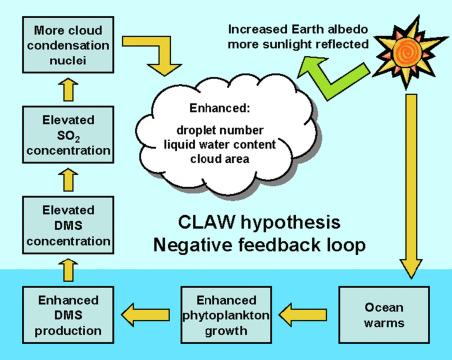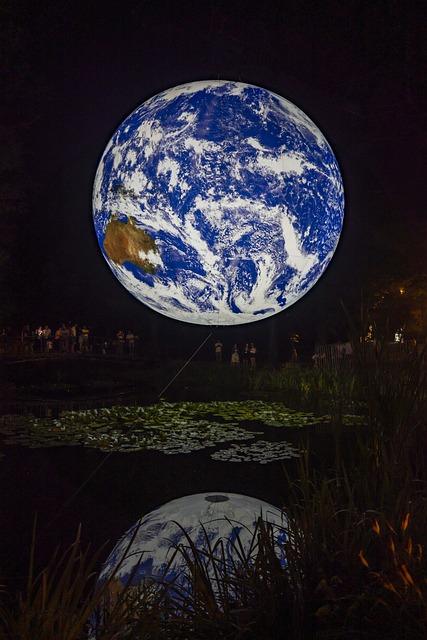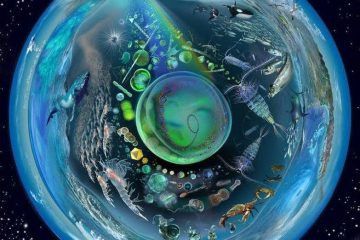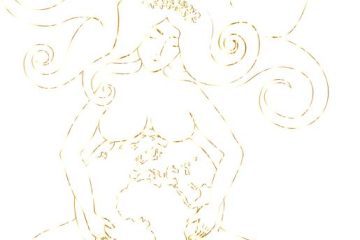Deep within the realm of ecological theory lies a concept as intriguing as the Earth itself – the Gaia hypothesis. This fascinating idea delves into the interconnectedness of all living beings on our planet, proposing a harmonious relationship between organisms and their environment. Join us on a journey to explore the profound meaning behind the Gaia hypothesis and unravel the mysteries it holds for our understanding of the natural world.
Table of Contents
- Understanding the Gaia Hypothesis: A Naturalistic Perspective
- Exploring the Interconnectedness of Life on Earth
- Implications of the Gaia Hypothesis for Environmental Conservation
- Applying Gaia Hypothesis Principles in Everyday Life
- Q&A
- To Conclude
Understanding the Gaia Hypothesis: A Naturalistic Perspective
The Gaia Hypothesis offers a fascinating lens through which to view our planet Earth. This theory posits that the Earth functions as a single, self-regulating organism, maintaining optimal conditions for life to thrive. Rather than viewing the planet as a collection of separate entities, the Gaia Hypothesis suggests a holistic perspective where Earth and its inhabitants are interconnected in a delicate balance of ecosystems.
At the core of the Gaia Hypothesis is the idea that the Earth’s biota, atmosphere, and geology interact in complex ways to sustain life. This interconnectedness highlights the intricate web of relationships that exist within the biosphere. By understanding this naturalistic perspective, we can appreciate the Earth as more than just a sum of its parts, but as a living, evolving system that continuously adapts to external influences.
Exploring the Interconnectedness of Life on Earth
The interconnectedness of life on Earth is a profound concept that resonates deeply with the Gaia hypothesis. In essence, this hypothesis posits that the Earth functions as a single living organism where all living beings, from the tiniest microorganisms to the largest mammals, are interconnected and influence each other in a complex web of relationships. This interconnectedness highlights the delicate balance that exists within ecosystems, where each component plays a crucial role in maintaining the equilibrium of the whole.
When we delve into the intricate tapestry of life on Earth, we begin to appreciate the beauty and complexity of how every living thing is interconnected. This interconnectedness goes beyond mere physical relationships; it encompasses the spiritual and energetic ties that bind all beings together. As we strive to understand and respect this interconnectedness, we open ourselves up to a deeper sense of harmony and unity with the natural world around us. Embracing the Gaia hypothesis means acknowledging our role as stewards of this interconnected web of life, with the responsibility to nurture and protect it for generations to come.
| Key Points: | Meaning: |
|---|---|
| Biodiversity | The variety of life forms on Earth |
| Interdependence | The reliance of living beings on each other |
| Balance | The importance of maintaining equilibrium in ecosystems |

Implications of the Gaia Hypothesis for Environmental Conservation
The Gaia Hypothesis proposes that the Earth functions as a self-regulating system, akin to a living organism. This concept suggests that the Earth’s biota collectively interact with the atmosphere, oceans, and geology to maintain conditions suitable for life. Embracing this idea could revolutionize how we approach environmental conservation, shifting our focus from individual species towards the holistic well-being of the planet.
Implementing the principles of the Gaia Hypothesis in conservation efforts could lead to innovative strategies that prioritize the interconnectedness of ecosystems. By recognizing the Earth as a complex and interdependent system, conservationists may develop more sustainable practices that benefit not only specific species but the entire biosphere. This holistic approach may inspire collaborative initiatives that promote biodiversity, restore ecosystems, and mitigate environmental degradation.
Applying Gaia Hypothesis Principles in Everyday Life
Imagine a world where every action taken, no matter how small, contributes to the well-being of the planet. The Gaia Hypothesis proposes that the Earth is a self-regulating system, akin to a living organism, where all components work together to maintain balance. By applying Gaia Hypothesis principles in our daily lives, we can foster a deeper connection with nature and promote sustainability for future generations.
One way to embody the ethos of the Gaia Hypothesis is by embracing a holistic approach to consumption. By prioritizing local and sustainable products, we reduce our carbon footprint and support the health of the planet. Additionally, nurturing green spaces, cultivating gardens, and composting organic waste are simple yet impactful ways to contribute positively to the Earth’s ecosystem. Small changes in our habits can lead to significant environmental transformations, aligning us more closely with the interconnectedness emphasized by the Gaia Hypothesis.
Q&A
Q: What is the Gaia Hypothesis, and why is it significant?
A: The Gaia Hypothesis proposes that the Earth functions as a self-regulating, living organism. It suggests that the planet, its atmosphere, oceans, and biosphere operate together as a complex system to maintain conditions suitable for life.
Q: Who developed the Gaia Hypothesis?
A: The Gaia Hypothesis was formulated by scientist James Lovelock and microbiologist Lynn Margulis in the 1970s. They suggested that the Earth is more than just a physical environment but exhibits characteristics of a living organism.
Q: How does the Gaia Hypothesis relate to environmental consciousness?
A: The Gaia Hypothesis encourages a holistic view of the Earth and emphasizes the interconnectedness of all living things. By recognizing the Earth as a single, self-regulating entity, it promotes a sense of responsibility and stewardship towards the environment.
Q: What are some criticisms of the Gaia Hypothesis?
A: Critics argue that attributing the Earth with living characteristics may oversimplify complex environmental systems. Some question the idea of Earth being able to self-regulate or maintain balance in the face of human-induced environmental challenges.
Q: How has the Gaia Hypothesis influenced modern ecological thinking?
A: The Gaia Hypothesis has sparked discussions on the interconnectedness of ecosystems and the importance of preserving biodiversity. It has inspired further research into the interactions between living organisms and their environment, shaping contemporary ecological thought.
To Conclude
As we conclude our exploration into the fascinating realm of the Gaia Hypothesis and its profound meaning, we invite you to ponder the interconnectedness of our planet Earth and all its living inhabitants. The Gaia Hypothesis challenges us to view the Earth not merely as a passive rock in space, but as a complex, self-regulating system teeming with life and harmony. Let’s embrace the wisdom of this hypothesis and strive to cultivate a deeper sense of respect and responsibility towards our planet and all its wonders. Thank you for joining us on this enlightening journey through the meaning of the Gaia Hypothesis. May we continue to learn, grow, and coexist in harmony with Mother Earth.



0 Comments